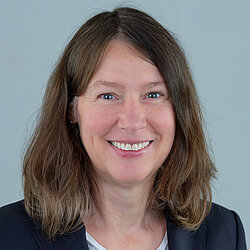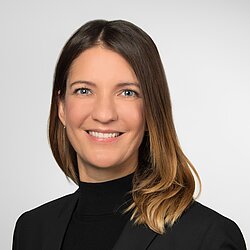In 2018, 25 thousand people lost their lives on European roads and about 135 thousand were seriously injured. This translates to 68 fatalities and 369 injured on average per day. Consequently, increasing traffic safety is among the goals of the European Commission and incorporated in the Sustainable Development Goals. However, it is unclear with which traffic measures this goal can be reached. This is due to the properties of the traffic system: it is composed of a multitude of variable processes which result in countless unique situations we find ourselves in when participating in traffic. Furthermore, accidents are rare events making the generation of necessary evidence a lengthy process. Hence, the effect of a certain measure, both positive and negative, is revealed with enormous time delay. This poses the risk of misdirected resources and further human suffering. A potential solution to provide a priori evidence for the effects of a traffic measure are virtual randomized controlled trials [1]. To this end, real traffic is replaced by simulated traffic that is suitable to generate a relevant and representative sample for assessing traffic safety. Since traffic accidents are often linked to human failure, modelling these processes in a valid way must be a major concern. This PhD project targets to contribute to modelling human failure in traffic. More specifically, driver failures leading to accidents with cyclists in urban right turns will be studied and modelled. In order to demonstrate the proposed assessment method, a system to warn cyclists of a potential conflict based on LiDAR technology will be modelled. In a last step, a virtual experiment with and without the warning system will be conducted to assess the effect of the system.
The role of perceptual failure and degrading processes in urban traffic accidents - a stochastic computational model for virtual experiments
MEMBER IN THE JOINT ACADEMIC PARTNERSHIP
since
Prof. Dr.-Ing. Klaus Bogenberger
Forschungsschwerpunkte:
- Verkehrstechnik / Verkehrsmanagement
- Verkehrstheorie
- Verkehrssteuerung
Projects:
- Lade- und Mobilitätsverhalten von batterieelektrischen Fahrzeugen und deren Einbindung in das Stromnetz als dezentrale Energiespeicher zur Erbringung von Systemdienstleistung
- Collective Perception using Roadside ITS Stations: Simulations on Traffic Safety and Efficiency of Urban Automated Driving
- Emissionsfreier öffentlicher Personennahverkehr
- Micro-mobility rider models for stochastic traffic safety simulations
- The role of perceptual failure and degrading processes in urban traffic accidents - a stochastic computational model for virtual experiments
- Generische Bestimmung des frei befahrbaren Raums für das autonome Fahren durch globale Risikominimierung einer lokalen dynamischen Fahrscene mittels eines prädiktiv-reaktiven Risikoprojektions- und -ausgleichsverfahren
- Reinforcement Learning for Traffic Light Optimization
Prof. Dr.-Ing. Werner Huber
Leiter CARISSMA Institute of Automated Driving (C-IAD)
Forschungsschwerpunkte:
- X-in-the-Loop-Testmethoden für automatisiertes Fahren
- Wirkungsbewertung durch virtuelle Feldtests und Simulation
- Generische Versuchsfahrzeugplattformen
Projects:
- Micro-mobility rider models for stochastic traffic safety simulations
- The role of perceptual failure and degrading processes in urban traffic accidents - a stochastic computational model for virtual experiments
- Bestimmung der Merkmale automotiver Radare
- Synthesizing Adverse Weather Image Data to lmprove Object Detection in Bad Visibility Conditions
Publikationen:
P. Brunner, F. Denk, W. Huber, and R. Kates, “Virtual safety performance assessment for automated driving in complex urban traffic scenarios,” in 2019 IEEE Intelligent Transportation Systems Conference (ITSC), Auckland, New Zealand, Oct. 2019, pp. 679–685. doi: 10.1109/ITSC.2019.8917517.
F. Denk, W. Huber, P. Brunner, and R. Kates, “The role of perceptual failure and degrading processes in urban traffic accidents: a stochastic computational model for virtual experiments,” in 2020 IEEE 23rd International Conference on Intelligent Transportation Systems (ITSC), Rhodes, Greece, Sep. 2020, pp. 1–7. doi: 10.1109/ITSC45102.2020.9294498.

Florian Denk
Technische Hochschule Ingolstadt
Publikationen und Poster
Florian Denk, Chantal Himmels, Vladislav Andreev, Johannes Lindner, Arslan Ali Syed, Andreas Riener, Werner Huber and Ronald Kates, 09/2023, Studying interactions of motorists and vulnerable road users: Empirical comparison of test track and simulator experiments, Bilbao, Spain
Florian Denk, Felix Fröhling, Pascal Brunner, Werner Huber, Martin Margreiter, Klaus Bogenberger, Ronald Kates, 06/2023, Design of an Experiment to Pinpoint Cognitive Failure Processes in the Interaction of Motorists and Vulnerable Road Users, Anchorage, USA
Pascal Brunner, Vikram Singh, Florian Denk, Martin Margreiter, Klaus Bogenberger, Werner Huber, Ronald Kates, 12/2022, Safety impacts of rising urban micromobility: statistical analysis of e-scooter use and risky rider behavior in Ingolstadt, Germany, Santiago, Chile
Florian Denk, Pascal Brunner, Werner Huber, Martin Margreiter, Klaus Bogenberger, Ronald Kates, 10/2022, Assessment of traffic safety interventions using virtual randomized controlled trials: potential of connected and automated driving including V2X for collision reduction at urban intersections, Macau, China, DOI:10.1109/ITSC55140.2022.9921764
Johannes Lindner, Andreas Keler, Georgios Grigoropoulos, Patrick Malcom, Florian Denk, Pascal Brunner, Klaus Bogenberger, 10/2022, A coupled driving simulator to investigate the interaction between bicycles and automated vehicles, Macau, China, DOI:10.1109/ITSC55140.2022.9922400
Johannes Lindner, Georgios Grigoropoulos, Andreas Keler, Patrick Malcom, Florian Denk, Pascal Brunner, Klaus Bogenberger, 06/2022, A mobile application for resolving bicyclist and automated vehicle interactions at intersections, Aachen, Germany, DOI: 10.1109/IV51971.2022.9827439
Pascal Brunner, Tetmar von dem Bussche-Hünnefeld, Florian Denk, Klaus Bogenberger, Werner Huber, Ronald Kates, 01/2022, An E-Scooter Safety Experiment -Design, Methodology and Results, Washington, United States
Keler, Andreas; Denk, Florian; Brunner, Pascal; Grigoropoulos, Georgios; Malcolm, Patrick; Bogenberger, Klaus, 2021, Varying Bicycle Infrastructures - An Interconnected Simulator Study for Inspecting Motorist-Cyclist Conflicts, DSC 2021 - 20th Driving Simulation & Virtual Reality Conference (DSC 2021)
Brunner Pascal, Löcken Andreas, Denk Florian, Kates Ronald, Huber Werner, 2020, Analysis of experimental data on dynamics and behavior of e-scooter riders and applications to the impact of automated driving functions on urban road safety, IEEE Intelligent Vehicles Symposium (IV), Las Vegas, US
Denk F., Huber W., Brunner P., Kates R., 2020, The role of perceptual failure and degrading processes in urban traffic accidents: a stochastic computational model for virtual experiments, 2020 IEEE 23rd International Conference on Intelligent Transportation Systems (ITSC), Rhodes, Greece

